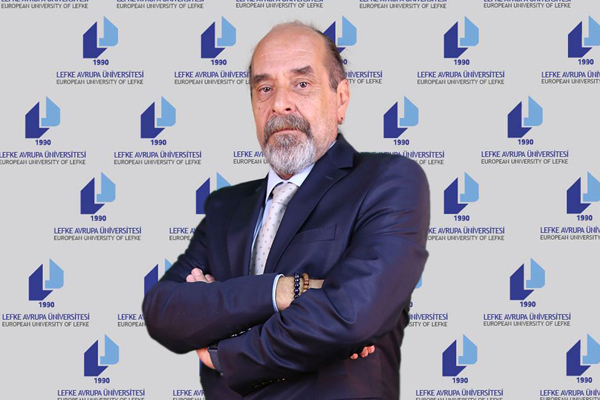EUL Academician Meriç discussed “Palliative Care in Physiotherapy”

Palliative care aims to improve the patient’s well-being
European University of Lefke (EUL) Faculty of Health Sciences, Head of Physiotherapy and Rehabilitation Department Asst. Prof. Dr. Aydın Meriç provided information on the subject of “Palliative Care in Physiotherapy”.
“As in the whole world, the elderly population is increasing in our country. This situation causes an increase in the number of people with advanced age and life-threatening chronic diseases. In parallel with this increase, in addition to cancer patients, elderly people and individuals with life-threatening chronic diseases are frequently admitted to palliative care centres. In the traditional medical treatment approach, comfort care is applied only in the last process to patients who do not respond to curative and aggressive treatments.” Meriç expressed that palliative medicine provides supportive treatment to the patient in all processes from the diagnosis of the incurable disease. Meriç stated that palliative care is a type of medical care offered to individuals who have to live with serious illnesses throughout their lives in order to make it easier for them to cope with their illnesses, and added that the aim of palliative care is to reduce the symptoms of the disease that threatens the life of the individual and the stress experienced by the patient and thus to improve the quality of life of both the patient and the patient’s relatives.
Meriç expressing that the palliative care process is managed by a multidisciplinary team including doctors, nurses, physiotherapists, psychologists, dieticians, social workers and pharmacists as in the treatment of many diseases, said, “The main aim in this process is to use treatment methods to prevent symptoms such as pain, anorexia, nausea, oedema, dyspnoea, weakness, depression, confusion, pressure sores, secretions caused by the disease, and to provide the patient with an active approach to improve the quality of life until the terminal period. While physiotherapy and rehabilitation practices were previously neglected in the palliative care process, studies conducted in recent years have shown that they have significant effects on reducing symptoms and increasing the quality of life of patients.”
Meriç listed the diseases that need physiotherapy and rehabilitation during palliative care period as follows; cancers, bone diseases that have spread, muscle diseases and progressive nerve diseases, chronic lung diseases, advanced heart failure and cardiac diseases. In these patients, it is important to encourage physical activity to prevent muscle wasting or loss of heart and lung endurance and to improve energy metabolism at the cellular level. Exercise also benefits the function of the immune system. Another problem that arises in individuals with lung and heart disease is their tolerance to exercise. Physiotherapy methods such as controlled endurance, limb strengthening, respiratory muscle strengthening and breathing exercises, cough training, respiratory and energy conservation techniques can be applied to patients.
“The duration of palliative care may vary according to the patient’s condition and the course of the disease. Palliative service generally aims to prioritise the patient’s peace and health. Palliative care, which aims to increase the patient’s welfare level, tries to keep the general health status above a certain level. Therefore, palliative care does not have a specific duration. The palliative care plan is prepared in accordance with the symptoms, needs and daily lifestyle of the patient who will receive care. Firstly, the symptoms experienced by the patient and the side effects of the treatment the patient receives are addressed and a treatment plan is created for them. It is aimed to increase the patient’s comfort and improve the quality of life with this care plan.”
